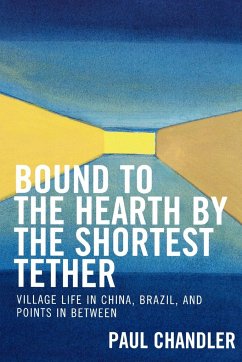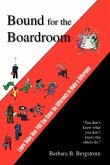Bound to the Hearth by the Shortest Tether is a story of original research in China and Brazil as well as the circumstances that made that work possible. Applied anthropology, rural economics, agroforestry, natural and social history, and world travel are combined to create an engaging account of the effort to better the circumstances of the developing world's rural poor. The first part of the book focuses on rural China and the indigenous knowledge of the processes at work within the world's oldest system of timber management and how that knowledge is being displaced by inferior scientific systems of forest management. The critical role of rights to private property in the conservation of rural resources, a unique method to elicit ecological knowledge, the difficulties of field access in China, and the varied challenges to living and working in a poor mountain village are all recounted. The second part addresses the tradition-bound "bush zone" of Brazil, documenting the unexpected reasons for the region's continuing poverty and a dramatic social transformation that may free the rural poor from dependency and perhaps poverty itself. After the failure of current "participatory" approaches in rural development work, new methods were again needed to identify non-participants in a rural assistance program and their reasons for not making use of an easy opportunity to better their lives and the lives of their families. Disturbing obstacles to self-reliance among the rural poor created by academics, bureaucrats, environmentalists, and the poor themselves are detailed. The author argues why preservation of the world's rural villages is important and why such often frustrating work is rewarding and worth the considerable effort. The book closes with unexpected lessons drawn from a lifetime beyond the end of the road. Humor, violence, friendship, and betrayal lace an account of unusual and creatively original research.
Hinweis: Dieser Artikel kann nur an eine deutsche Lieferadresse ausgeliefert werden.
Hinweis: Dieser Artikel kann nur an eine deutsche Lieferadresse ausgeliefert werden.








